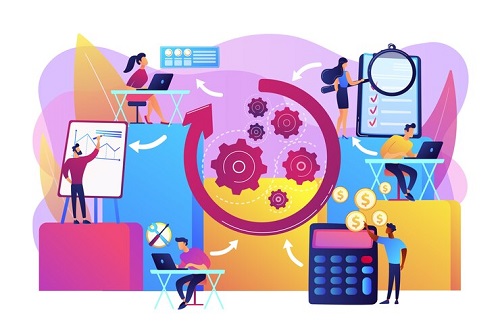In today’s fast-paced and competitive business landscape, companies are constantly seeking innovative ways to gain a competitive edge, improve efficiency, and drive growth. One of the most powerful tools at their disposal is artificial intelligence (AI) and machine learning. These cutting-edge technologies have the potential to revolutionize the way businesses operate, make decisions, and interact with customers.
AI and machine learning are transforming various aspects of business operations, from customer service and marketing to supply chain management and financial forecasting. By leveraging these technologies, businesses can harness the power of data to gain valuable insights, automate repetitive tasks, and make more informed decisions.

One of the key advantages of AI and machine learning in business is their ability to analyze large volumes of data at an unprecedented speed and accuracy. This enables companies to uncover patterns, trends, and correlations that may have otherwise gone unnoticed. By leveraging these insights, businesses can optimize their processes, identify new opportunities, and mitigate risks.
In the realm of customer service, AI-powered chatbots and virtual assistants are revolutionizing the way companies interact with their customers. These intelligent systems can provide personalized support, answer inquiries, and even anticipate customer needs, thereby enhancing the overall customer experience.
Moreover, AI and machine learning are driving significant advancements in marketing and sales. By analyzing customer behavior and preferences, businesses can deliver targeted and personalized marketing campaigns, leading to higher conversion rates and increased customer loyalty. Additionally, these technologies enable predictive analytics, allowing businesses to forecast demand, optimize pricing strategies, and identify potential cross-selling opportunities.
In the realm of supply chain management, AI and machine learning are streamlining operations and optimizing logistics. These technologies can analyze historical data, real-time information, and external factors to predict demand, manage inventory levels, and optimize transportation routes. As a result, businesses can reduce costs, minimize stockouts, and improve overall efficiency.
Financial forecasting is another area where AI and machine learning are making a significant impact. By analyzing historical financial data, market trends, and macroeconomic indicators, these technologies can provide more accurate and timely forecasts, enabling businesses to make better-informed decisions and mitigate financial risks.
Furthermore, AI and machine learning are empowering businesses to automate a wide range of tasks, from data entry and document processing to quality control and predictive maintenance. This not only frees up valuable human resources to focus on more strategic initiatives but also reduces the potential for errors and inconsistencies.
In conclusion, the power of AI and machine learning in business cannot be overstated. These technologies have the potential to drive innovation, improve efficiency, and fuel growth across various facets of business operations. As companies continue to embrace and harness the capabilities of AI and machine learning, they will undoubtedly gain a competitive advantage in an increasingly dynamic and data-driven business environment.


